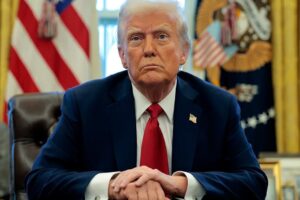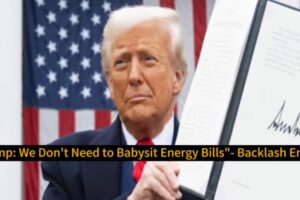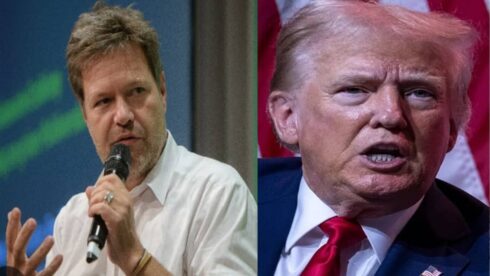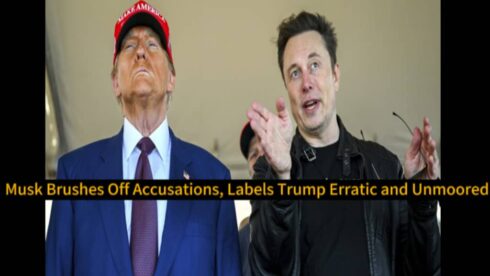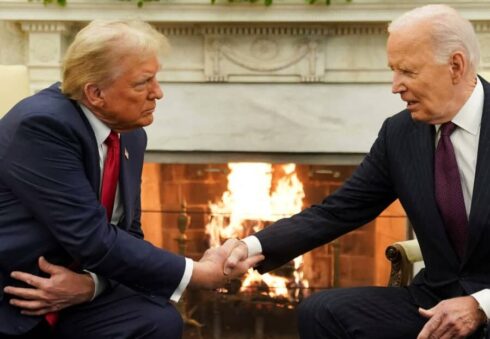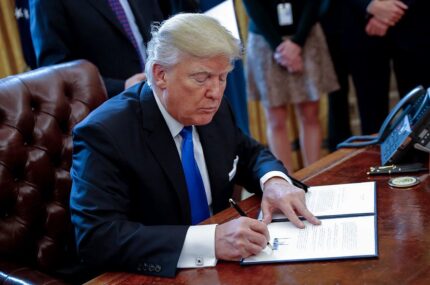Germany’s Economy Minister Robert Habeck did not mince words when he condemned the United States’ tariff calculations, calling them “nonsense” in a direct challenge to Washington’s trade strategy. The unusually blunt remark marks a significant escalation in the simmering tension between Europe and the U.S., fueled by concerns over protectionist trade policies and mounting economic nationalism.
Robert Habeck’s criticism comes in response to U.S. plans to impose new tariffs on a range of European goods, citing imbalances and unfair subsidies. However, the German minister insists these claims are “wildly exaggerated” and “economically irrational,” accusing the U.S. of manipulating data to justify an aggressive agenda that could disrupt global trade stability. His comments signal a hardening stance from Berlin, traditionally a proponent of diplomatic dialogue.
EU Has the Upper Hand in Trade Retaliation, Says Habeck
Robert Habeck declared that the European Union is in a ‘strong position’ to strike back if the U.S. implements its proposed tariffs. “This is not 2018,” Habeck said, referring to previous trade wars. “The EU has restructured its supply chains, deepened internal resilience, and built strategic alliances that will cushion any American shock.”
He further warned that Europe would not sit idly by while Washington weaponizes economic policy for political gain. “Retaliatory measures will be swift, calibrated, and legal under WTO regulations,” Habeck asserted, hinting at coordinated levies on key U.S. exports including agricultural products, tech components, and luxury goods. The statement drew immediate global attention, with analysts now bracing for a potential transatlantic trade war.
German Industry Backs Robert Habeck’s Tough Line Against Washington
German industrial leaders have expressed support for Habeck’s firm stance, fearing that U.S. tariffs could undermine EU competitiveness in sectors like automotive, renewable energy, and advanced manufacturing. The Federation of German Industries (BDI) praised Habeck for defending European economic sovereignty, warning that Washington’s moves could destabilize key supply chains already under pressure from inflation and geopolitical shocks.
Executives from major corporations like Volkswagen and Siemens echoed the sentiment, noting that unfair U.S. tariffs could lead to price hikes, job losses, and diminished innovation. “This is not just a numbers game; it’s about economic justice,” one executive said. The backing of German business heavyweights strengthens Habeck’s position as he pushes for a unified and robust EU response.
U.S. Tariff Tactics Risk Backfiring, Warns European Economists
Leading European economists have labeled Washington’s tariff proposals as economically shortsighted and diplomatically reckless. “The U.S. is risking long-term damage to its own economy by provoking key allies,” said Dr. Miriam Keller of the European Economic Institute. “Tariffs may offer short-term political wins but they erode trust and global economic integration.”
Robert Habeck echoed this view, accusing the U.S. of pursuing “zero-sum economics in a multipolar world.” He warned that America’s insular strategy could isolate it from critical trade relationships just as global economic realignment gains momentum. The broader message from the EU is clear: if Washington chooses confrontation over cooperation, it will face calculated economic retaliation.
Robert Habeck Warns of Rising Transatlantic Tensions and Global Fallout
Robert Habeck issued a stark warning about the wider geopolitical consequences of escalating U.S.-EU trade tensions. “This is not merely a bilateral dispute; it’s a flashpoint for global economic instability,” he said. With global inflation still volatile and energy markets fragile, new tariffs could trigger supply chain shocks, reduce investor confidence, and even impact climate transition goals.
He also expressed concern about the fragmentation of Western unity, especially at a time when cohesive alliances are critical in facing challenges from China, Russia, and global economic uncertainty. “If allies fight among themselves, adversaries rejoice,” Habeck remarked. His statement resonated with European leaders who fear a full-blown trade war could fracture the transatlantic alliance.
EU Eyes Strategic Trade Diversification in Response to U.S. Aggression
In a final message, Robert Habeck underscored the EU’s growing commitment to diversifying trade partnerships to reduce dependence on unpredictable U.S. policies. “We are strengthening ties with Southeast Asia, Latin America, and Africa,” he said. “Europe must become more autonomous in its economic diplomacy and less vulnerable to external shocks.”
The EU’s recent push for trade deals with countries like India, Brazil, and Kenya aligns with Habeck’s long-standing belief in a multi-aligned trade ecosystem. As U.S. policies grow more erratic, Europe appears ready to chart a more independent and strategic course. The message from Berlin is loud and clear: the EU will not be bullied—and it is fully prepared to respond in kind.






